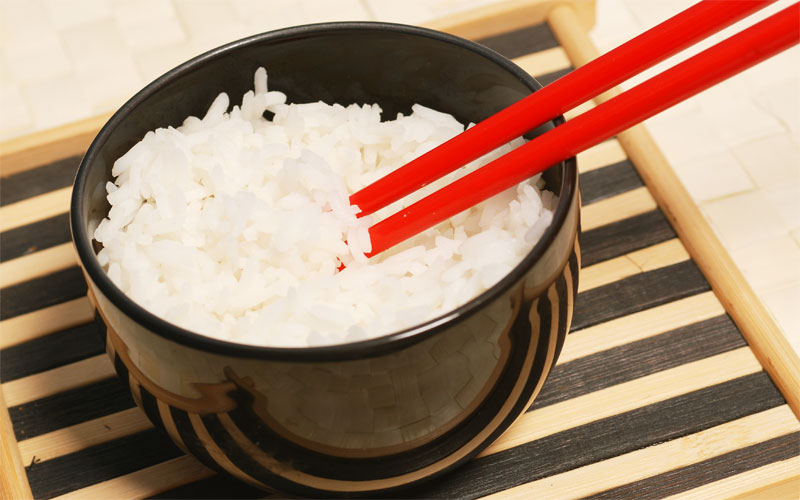
April 3, 2012, by Stephen Mumford
Chopsticks
On a recent visit to the University of Nottingham campus at Ningbo, China, I came across a creative writing reading group. They take turns to pen very short stories of no more than 600 words that they can discuss together. I mentioned that I loved writing but had never attempted fiction. An invitation – perhaps I should say challenge – was promptly issued. But my story had to be about chopsticks. How could I say no? My very short story is reproduced below. Do you think you can do better? Be my guest. I hope you have as much fun as I did.
Chopsticks
On his first time in China, he rued all those missed opportunities to gain mastery over chopsticks. When a knife and fork had been offered, he took them. Here there was no such alternative. How was he to eat vegetables and rice with two long, straight pieces of wood?
He tried using them like tweezers, zeroing-in on the biggest vegetable on his plate. But it squirmed free. He couldn’t apply enough pressure to maintain a hold. And it seemed to him that there ought to be a third or fourth stick that could together form an inescapable trap.
The rice was sticky and in its way less of a challenge. Checking around the room to see that he wasn’t watched, he found he could hold the sticks close to each other to form a makeshift scoop. Lowering his head more than is polite in western society, he managed to lift the rice from underneath and get it to his mouth before it fell from his badly-managed implements. With three days in the country, he had no choice. This was pure Darwinism. He must master the sticks, or starve.
On the first day, he scooped his food so slowly that it was cold before he finished. He hated cold food. But the survival instinct made him a quick learner. Day two was better and on day three, just before his departure, he could successfully lift even a small slippery mushroom. His technique was awkward and far from textbook, but it did the job.
What had made the difference? At first, he felt only the sticks resting in his hand. Now he was starting instead to feel the food with the end of the sticks. It was as if the chopsticks had been absorbed into him, becoming an appendage to his body. He had been feeling the sticks as if they were part of the outside world: a mistake. He had come gradually to feel as if the outside world started at the end of his sticks.
He lifted a green vegetable. He looked hard for a time until it was the absolute focus of attention. The chopsticks drew him in, pointing to the food, directing his senses and imagination. Could they function like a microscope: not by making things look bigger but, rather, enabling the user to look closer? The effect was the same. He could see something smaller.
In a moment, he felt transported. The food at the end of the wood consumed his visual field, pulling him down, down, and he suddenly felt very small. But then he saw he was no longer holding food in the chopsticks. He saw only himself in their tight grasp. Again he felt a very clear concentration. He saw himself like never before.
All his life from start to finish could now be understood. He realised why he had made all the decisions that had defined him. His feelings and emotions were laid bare for simple empirical inspection. And the inevitable future that awaited was as obvious as an elementary arithmetic demonstration. There would be no more agonising over decisions. All of them were now made. There were no doubts. And nor was there need for any further agonising over the past. He forgave himself for all of that.
He emerged from his trance gradually. What had brought this moment of existential revelation? Nothing? The chopsticks. For a time, all that existed was what they held. When he saw himself at their ends, he had been the entire universe. Nothing had obstructed his view. And everything seemed all so clear then and now.

I started using chopsticks at age 14, the sort of thing that teens do — though in my case it was in order to be like the hippie grown-ups, not in order to rebel against anyone’s mediocrity or conformist ways. I always liked the feel of the sticks as they slide against my mouth, especially if they are wooden ones, and are a pleasing pair. When I was 16, a family friend carved me a pair out of West Virginia black walnut, as he called it. I still have those. A few years ago he made me a back-up pair, though the first ones are my favorite, and are the ones that are really mine. Everyone should have their own pair, I think. Anyway, the thing about chopsticks is this: the holding of them expresses proprioceptively something that is true in many registers: hold too close to the top, & you have a lot of control but no range of motion; hold too far back, and you have a wide range of motion but no control. Neither gives rise to grace. Like baseball-bat swings, swimming strokes and love, chop sticks too have a sweet spot.